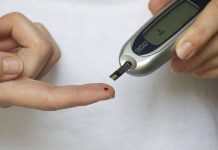Perimenopause can cause dramatic changes that interfere with the menstrual cycle, hormone balance, sleep, metabolism, immune function, and sexual reproduction (fertility). The gradual changes typically last for an average of 4 years but can extend to as much as 10 years. Getting tested helps to determine if you are perimenopausal and how to treat your symptoms.
What is Perimenopause?
“The rapid decline in estrogen leads to transition symptoms such as skipped menstrual cycle, cycles that are longer or shorter than usual, or lighter or heavier periods”
51 is the average age of menopause, a time when women stop getting their menstrual period and lose the ability to reproduce. Being perimenopausal means you’ve entered the stage leading up to menopause. This stage begins when there is a marked decline or fluctuation in estrogen levels and can start in your 30’s or 40’s.
Estrogen is a sex hormone produced in the ovaries and is responsible for regulating the menstrual cycle and reproductive system. The rapid decline in estrogen leads to transition symptoms such as skipped menstrual cycle, cycles that are longer or shorter than usual, or lighter or heavier periods.
The following other symptoms may occur and may be mild or severe. It is important to note that some women do not experience any symptoms:
- Hot flashes
- Night sweats
- Mood swings
- Low sex drive
- Vaginal changes, e.g., vaginal dryness
- Frequent urination or urine leakage (incontinence)
- Trouble falling asleep or staying asleep
When You Should Do Perimenopause Testing?
“Before seeing their doctor, some women simply go ahead and take a home test”

You should do perimenopause testing if you noticed any of these symptoms but you’re not sure what’s causing them. You can also test if the symptoms are interfering with your quality of life, for example, you experience ongoing insomnia or severe mood swings. According to Harvard Health Publishing, about 40% of perimenopausal women trouble with sleep disturbances which may also be accompanied by night sweats.
Before seeing their doctor, some women simply go ahead and take a home test. The FDA has approved home tests to measure the Follicle Stimulating Hormone (FSH) levels in your urine. FSH usually increases at a certain time of the month to help stimulate the production of eggs in the ovaries.
If the levels increase and stay consistently elevated, this may mean menopause is setting in. However, home-testing kits are not reliable since various factors need to be considered when diagnosing your symptoms. Your doctor may be able to make a more accurate diagnosis.
The Importance of Undergoing a Perimenopause Test

Doing this test helps your doctor to determine if you are indeed experiencing perimenopausal symptoms and how to treat you. Treatment is important to help prevent or stop the negative effects of these symptoms on your health and overall well-being. However, getting the right treatment depends on an accurate diagnosis.
It is not necessarily easy to detect when you’ve entered into your perimenopausal stage. This is because there is no single test that is specific enough to predict or confirm this. According to The Journal of Family Practice, the best predictors that a woman will begin her perimenopausal journey within 4 years are the following:
- She’s at least 50 years old
- Missed her periods for 3 to 11 months
- Experienced menstrual cycle irregularity within 12 months
When to Call Your Doctor
“you should see your doctor if you have abnormal bleeding”

You should call your doctor if you have a positive FSH test. However, your doctor will need to run lab tests to make an accurate diagnosis of your symptoms. Furthermore, self-diagnosing your symptoms may not be helpful as clinically similar conditions like thyroid disease or diabetes need to be ruled out. For example, while irregular periods are normal and common during the perimenopausal phase, changes in menstrual bleeding can be due to other conditions such as:
- Fibroids
- Contraceptives
- Pregnancy
- Hormonal imbalance
- Blood clotting problems
Nevertheless, you should see your doctor if you have abnormal bleeding or notice any of these symptoms:
- Very heavy periods
- Bleeding with blood clots
- Periods occur closer together
- Spotting after sex or between periods
- Periods last a few days longer than normal
Your doctor will do a thorough medical assessment to help confirm or rule out other causes and treat you if necessary. Your doctor will run various tests, ask about your symptoms and body changes, and consider your age, medical history, and menstrual history.
Conclusion
Undergoing perimenopause testing and receiving treatment can help to improve your symptoms and quality of life. Lifestyle adjustments may also help to ease some of your symptoms. For example, getting enough sleep, eating healthy, and exercising to maintain immune balance.
Some women may rely on alternative medicine to help get them through this phase. Remember to always talk with your doctor about the risk and benefits of undergoing any form of treatment whether it involves traditional medicine or alternative methods.
Sources & References:
The American College of Obstetricians and Gynecologists: https://www.acog.org/Patients/FAQs/The-Menopause-Years?IsMobileSet=false
WebMD: https://www.webmd.com/menopause/guide/guide-perimenopause#1
Harvard Health Publishing: https://www.health.harvard.edu/womens-health/perimenopause-rocky-road-to-menopause
WebMD: https://www.webmd.com/menopause/qa/when-should-i-be-concerned-about-perimenopausal-symptoms
MayoClinic: https://www.mayoclinic.org/diseases-conditions/perimenopause/diagnosis-treatment/drc-20354671





















